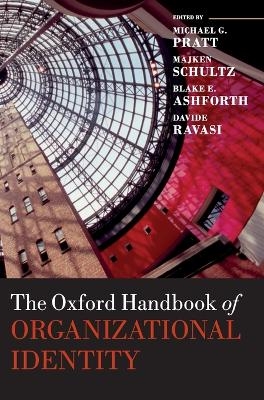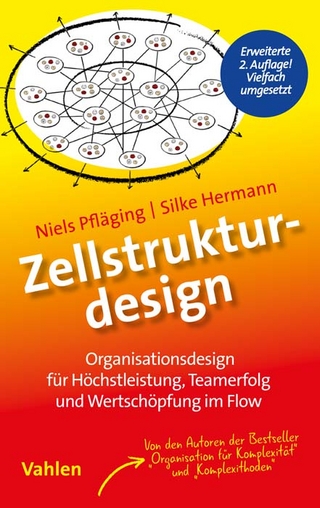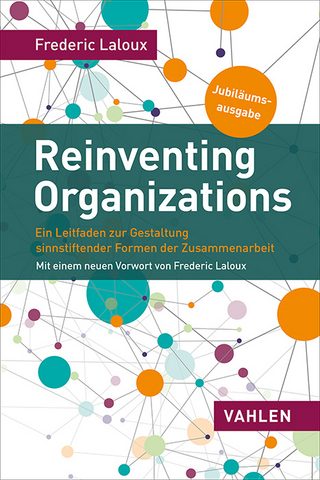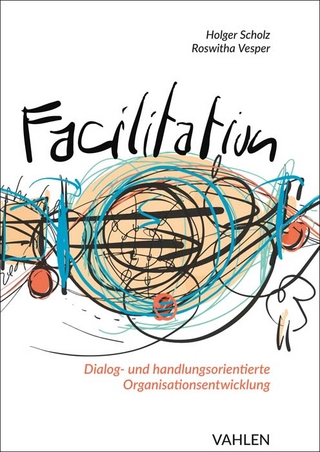
The Oxford Handbook of Organizational Identity
Oxford University Press (Verlag)
978-0-19-968957-6 (ISBN)
The topic of organizational identity has been fast growing in management and organization studies in the last 20 years. Identity studies focus on how organizations define themselves and what they stand for in relation to both internal and external stakeholders. Organizational identity (OI) scholars study both how such self-definitions emerge and develop, as well as their implications for OI, leadership and change, among others.
We believe there are at least four inter-related reasons for the growing importance of OI. OI addresses essential questions of social existence by asking: Who are we and who are we becoming as a collective? It is a relational construct connecting concepts and ideas that are often viewed as oppositional, such as "us" and "them" or "similar" and "differen". OI is also nexus concept serving to gather multiple central constructs, also represented in this Handbook. Finally, OI is inherently useful, as knowing who you are is the foundation for being able to state what you stand for and what you are promising to others, no matter their relation with the organization.
The Handbook provides a road-map to the OI field organized in over 25 chapters across seven sections. Each chapter not only offers a broad overview of its particular topic, each also advances new knowledge and discusses the future of research in its area of focus.
Michael G. Pratt is the O'Connor Family Professor in the Carroll School of Management at Boston College. He earned his Ph.D. from the University of Michigan. His research is problem-centered and process-oriented, and consequently he tends to engage in cross-level research. His interests include how individuals connect with the work that they do, as well as to the organizations, professions, occupations, and other collectives in which they find themselves. Theoretically, his research draws heavily from theories of identity and identification, ambivalence, meaning, intuition, and culture (e.g., artifacts). Mike is currently a fellow of the Academy of Management and an associate editor for the Administrative Science Quarterly. Majken Schultz is Professor of Organization and Management since 1996 at Copenhagen Business School. Her research focuses on the interrelations between organizational culture and organizational identity during transformational change. Currently she is interested in how organizations reconstruct their identity in time based on longitudinal studies of LEGO and Carlsberg Group. She has published more than 50 articles in international peer reviewed journals on these topics and edited/co-authored multiple books, including several with Oxford University Press. She is International Research Fellow at the Centre for Corporate Reputation at Oxford University, member of the Royal Danish Academy of Sciences and Letters and serves on several company boards. Blake Ashforth is the Horace Steele Arizona Heritage Chair in the W. P. Carey School of Business, Arizona State University. He received his Ph.D. from the University of Toronto. His research concerns the ongoing dance between individuals and organizations, including identity and identification, socialization and newcomer work adjustment, and the links among individual-, group-, and organization-level phenomena. Recent research has focused on dirty work, ambivalence, and respect. Blake is a fellow of the Academy of Management. Davide Ravasi is Professor of Strategic and Entrepreneurial Management at the Cass Business School, City University London. His research examines interrelations between organizational identity, culture, and strategy in times of change, and how discursive and material artifacts influence sensemaking. He is interested more generally in cultural processes influencing how new objects and new practices come to be, and whether and how they are adopted by individuals and organizations. His works have appeared on the Academy of Management Journal, Organization Science, Journal of Management Studies, Strategic Organization, and other journals.
SECTION 1: MAPPING THE ORGANIZATIONAL IDENTITY (OI) FIELD; SECTION 2: CRITICAL PERSPECTIVES ON OI; SECTION 3: INTEGRATIVE MODELS OF OI; SECTION 4: HOW INDIVIDUALS RELATE TO OI; SECTION 5: SOURCES AND PROCESSES OF OI; SECTION 6: OI AND THE ENVIRONMENT; SECTION 7: IMPLICATIONS OF OI
| Erscheinungsdatum | 21.09.2016 |
|---|---|
| Reihe/Serie | Oxford Handbooks |
| Verlagsort | Oxford |
| Sprache | englisch |
| Maße | 178 x 246 mm |
| Gewicht | 1050 g |
| Themenwelt | Wirtschaft ► Betriebswirtschaft / Management ► Planung / Organisation |
| ISBN-10 | 0-19-968957-1 / 0199689571 |
| ISBN-13 | 978-0-19-968957-6 / 9780199689576 |
| Zustand | Neuware |
| Informationen gemäß Produktsicherheitsverordnung (GPSR) | |
| Haben Sie eine Frage zum Produkt? |
aus dem Bereich


